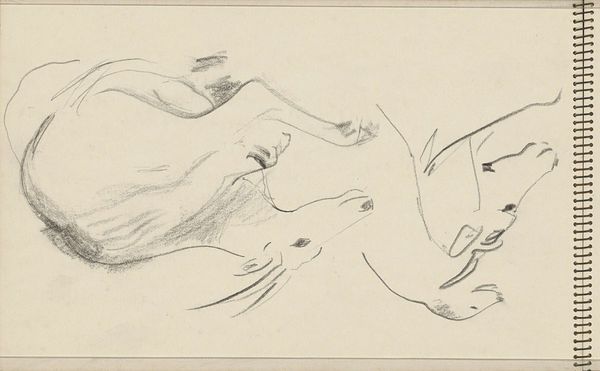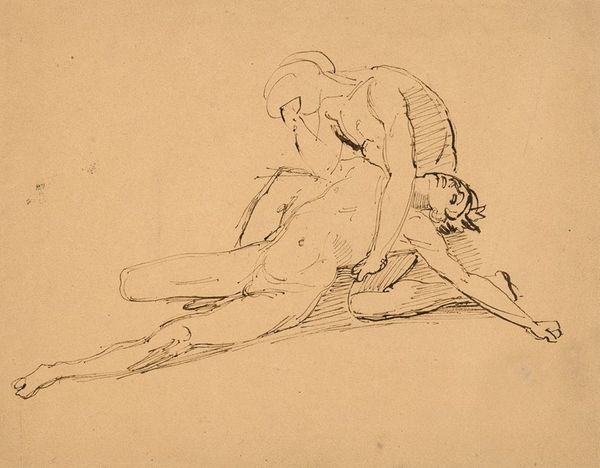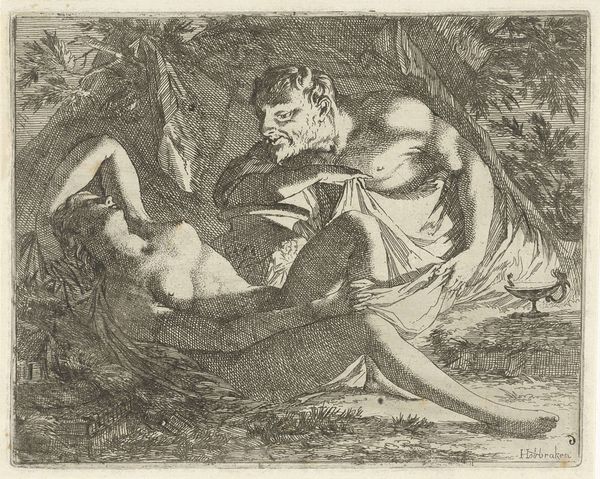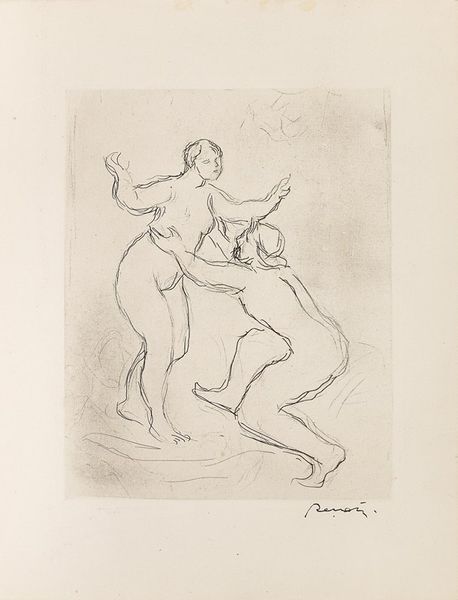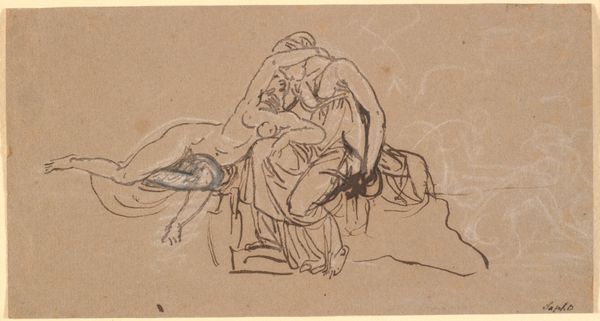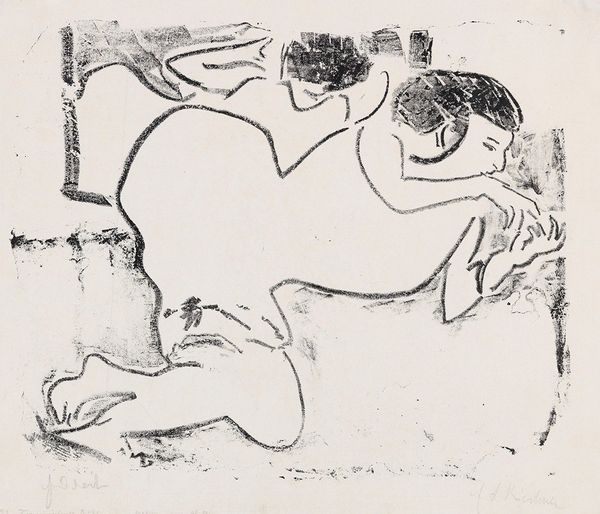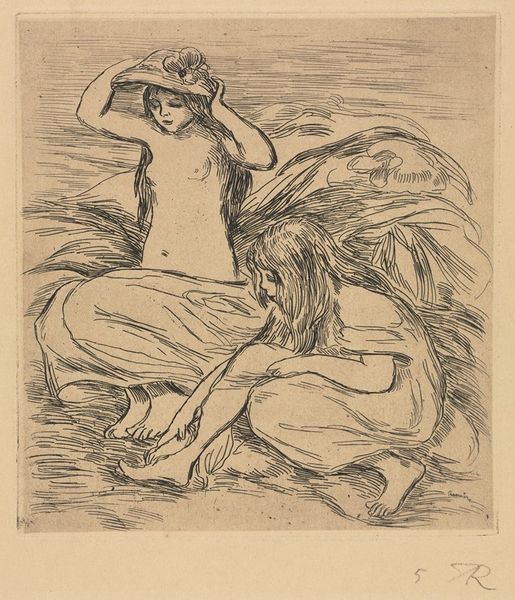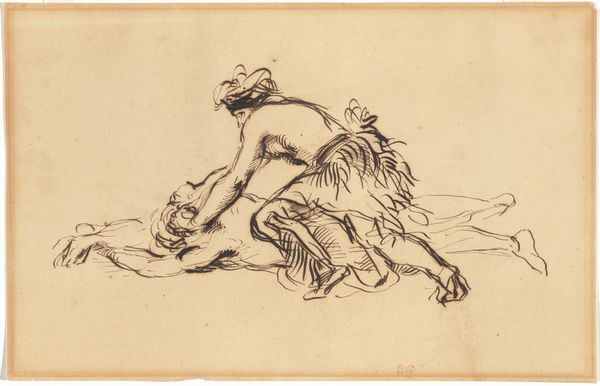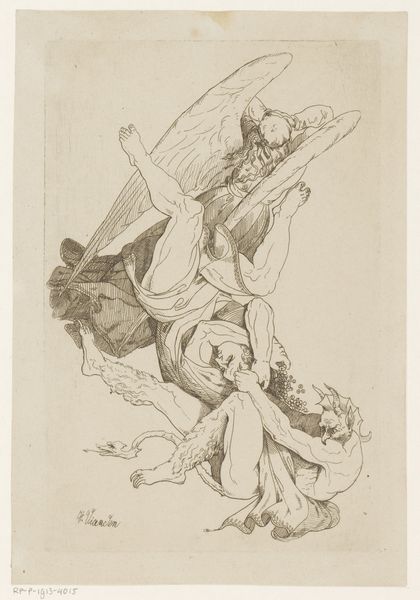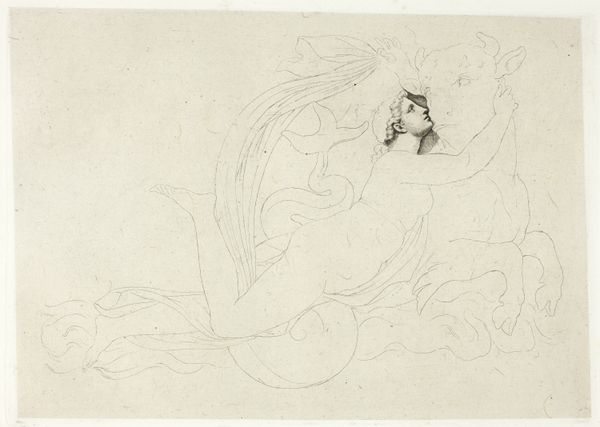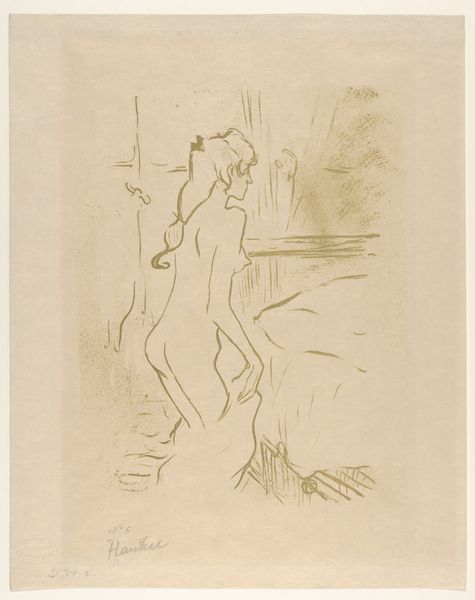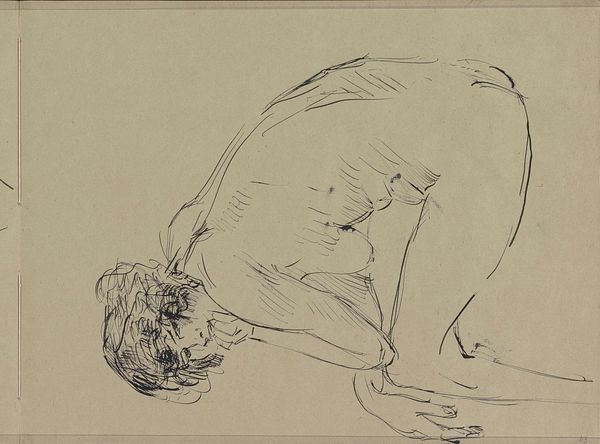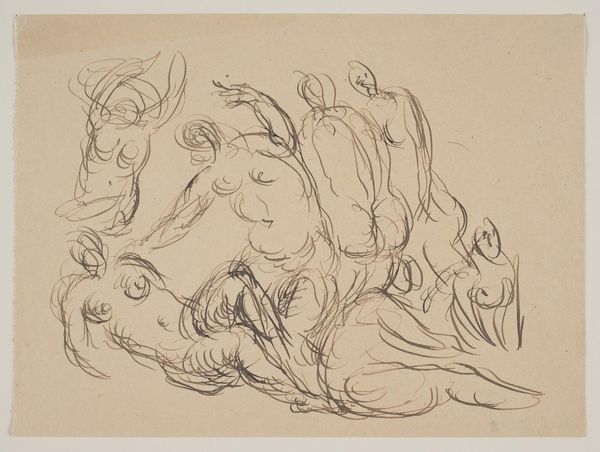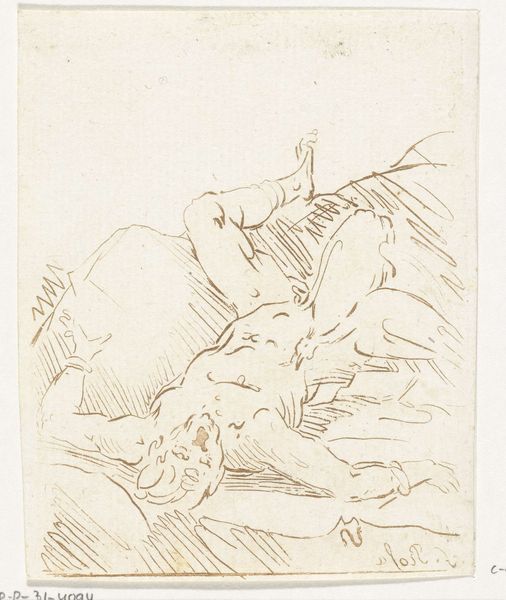
#
light pencil work
#
pen sketch
#
pencil sketch
#
cartoon sketch
#
personal sketchbook
#
ink drawing experimentation
#
pen-ink sketch
#
sketchbook drawing
#
pencil work
#
storyboard and sketchbook work
Dimensions: height 190 mm, width 305 mm
Copyright: Rijks Museum: Open Domain
Curator: Here we have Aristide Maillol's "Wasvrouw zit op knieën aan waterkant," thought to be from around 1895, housed here at the Rijksmuseum. A washerwoman kneels, poised elegantly by the water's edge. What are your first impressions? Editor: It feels intimate, almost like peering into a private moment. The sketch is light, the lines fluid; you can almost feel the dampness of the fabric and the cool air around the water. The focus seems to be the cloth itself—the material’s weight and texture. Curator: Yes, it's remarkable how he captures the essence with such minimal lines. To me, there's a real sense of tranquility here. Maillol wasn’t just sketching a figure; he was exploring form and capturing a mood. This isn’t just labor, but a ballet of cloth and water. Editor: Absolutely. And you know, the material reality of the task comes to mind. Consider the physical labor: kneeling for extended periods, wrestling heavy, wet cloth, the economics behind keeping fabrics pristine, who does such work, and why. Curator: It certainly invites us to consider the unseen aspects of daily life, doesn’t it? It seems Maillol imbues the subject with a subtle dignity, almost a reverence, capturing not just the physical act, but the quiet strength of this woman. Editor: I wonder about the choice of material for the drawing itself, the graphite and paper, its accessibility. How this sketch exists alongside other, maybe more lauded works that require very different and much more costly resources. Is there an implicit politics of medium happening? Curator: A fascinating point! His choice certainly underscores the beauty in simplicity. The rough sketch highlights something very fundamental, focusing on gesture and essence rather than polished detail. Editor: It reveals a world that sometimes evades fine art’s usual frame of consideration, that reminds us about how art always connects to daily routines, habits, trades and their participants. Curator: Exactly. It seems Maillol, in his sketch, seeks to remind us that true beauty resides not just in grand gestures, but in the everyday acts that form the fabric of our lives. It truly humanizes the artistic process as much as the labor it depicts.
Comments
No comments
Be the first to comment and join the conversation on the ultimate creative platform.
